In a world where far too much glitz and short term thinking is dominating, Erden Eruc stands apart. I have to admit, it is a long time since I came across a journey worthy of big attention and now when it is done, it deserves much more. Erden spent 5 years circumnavigating the world by his own power. I was happy to read the Explorers Club at least gave him a citation of merit. He should have had the Explorers Medal, who instead went to somebody else, in my book far less deserving. On and off during his journey we communicated and I often wondered what his life would be like coming back after such a long time, a journey which will for ever shape his life. So far, so good. It is never easy coming back, especially once things settle down. Therefore I am honored and happy to share this piece with you readers, where Erden brings up a very touchy subject, but that´s what real explorers do.
Dolphin meat, whale meat, who cares?
By
Erden Eruc
I had been silent on our blog during the long inward journey after the conclusion of my human powered circumnavigation. I was finally preparing to sit down and share stories from the last few days leading up to my conclusion at Bodega Bay on 21 July 2012, and from its aftermath. Then I came across this article. I had already seen the Oscar winning documentary “The Cove” about the merciless annual hunt of dolphins at the Taiji Inlet in Japan. Not that dolphin killing was any good, but this article also talked about the killing of pilot whales. I had to drop everything I was doing to write this article instead!
I find our hubris as humankind mind boggling. We are multiplying in numbers to the point that we are depleting any resource in sight, we do not know when to stop, we do not know how to coexist with the other creatures of this earth, we destroy their habitats, we drive them to extinction. We do it to each other as fellow humans anyway so who cares about the lesser creatures, may be the logic. I am saddened and losing hope about sustainability. This a “tragedy of the commons” played on a global scale. The short term interests of each individual player are spoiling the environment for all of us.
It took the Superstorm Sandy to end the climate silence. It is my guess that the insurance industry in USA will kick back hard in increased premiums to compensate for their losses. I also suspect that their losses will continue to mount on the populated southern and eastern coastlines of the USA over the coming decades due to increased exposure to extreme weather and surging seas. China faces the same problem with their typhoons, so they can keep building those coal power plants to the detriment of all. It will only speed up the inevitable.
Deny it all we want, the increased cost of insurance will bring behavior modification if the system is not rigged by the artificial influx of money from non-insurance sources (i.e. government). Cry all we want, the populist agenda to be reelected, will drive politicians to keep subsidizing rebuilding of housing on the hurricane prone coastlines and the flood plains. So the math says that since politicians cannot ever agree to raise taxes, the same influx will have to be borrowed from future generations as an increase in deficit. We are already busy destroying the world of our offspring so this is a double whammy on our children. We cannot afford it today; they do not deserve it tomorrow. This is immoral and it is irresponsible on our part. Since we will not be around to see it, we kick the can down the road; I admit that our generation until now has been callously lacking in accountability.
While I empathize with the losses on the New Jersey shores, part of me wants nature to continue to hammer the message home until there remains no more denial about it. Just me talking about it won’t make a difference. When the externalities of our carbon based lifestyle come knocking on the door in the form of increased costs of insurance or in time, money and productivity lost in rebuilding, then costs will strip away the profits. It is only when it costs more to do nothing will we be motivated to act. By then, it will be too late I am afraid…
What does the hurricane have anything to do with Taiji?
Whales are killed in the southern oceans “for research” and the slaughter of dolphins along with pilot whales resume in the “Killing Cove.” I am opposed to this this cruel practice to begin with. In addition, dolphin meat is like that of the tuna or the orca — these creatures sit on top of the food chain, so their meat carries high levels of heavy metals and chemicals. I wrote about the health of Puget Sound on 23 April 2009 in Earth Day title:
“The declining salmon populations were threatening the orcas which could leave the area permanently in search of food. The same orcas which were at the top of the food chain showed increased concentrations of endocrine disruptors like PCB’s in their fatty tissues. These chemicals, once in the water, remained there for decades. There were alarming signs of environmental degradation with cross gender mutations and malformed members of the frog populations. Clearly this trend was not sustainable; we had to change our ways to preserve these resources for the future generations.”
Since then, I came across Puget Sound Keeper Alliance which is a local grassroots organization with the mission to become our voice against polluters of all kinds to keep the Puget Sound healthy for the future generations.
I also eluded in the same dispatch to the once-a-year demonstrations which seem to make the news on Earth Day:
“It is fine that demonstrations happen once a year around the world. Yet these will not make any difference unless we each feel that we are a stakeholder of this planet and hold ourselves accountable. We are each a steward of this fragile chunk of rock that we call: Earth. Our impact is far reaching in every one of the choices that we make in our daily consumption to maintain a habitual lifestyle. The way we commute, the way we live, the way we eat, the way we power ourselves, each leave a lasting footprint on the environment. This calls for behavior modification on a massive scale which cannot happen unless we each become aware of our impact on the environment. How can we each reduce our own footprint? This is a compelling question worth exploring as members of a consumer society…”
The article on the In Defense of Animals (IDA) website quotes Dr. Anand Ramanathan, their executive director:
“Since many adult humans in the Taiji region are 50 to 100 times more mercury-toxic than banned fish, the risk to fetuses, infants and toddlers is inexcusable. It is unconscionable that the Japanese government states everything is fine and residents need not be concerned. This government permits the horrific slaughter of entire pods of dolphins, porpoises and whales, and then encourages their citizens to eat the contaminated flesh. They should immediately ban the consumption of cetacean meat.”
The same article mentions that “evidence presented in The Cove documentary, and in University of Hokkaido Professor Tetsuya Endo’s study, revealed that Taiji residents have 10 times higher mercury levels than other Japanese citizens” and that Denmark’s Faroe Islanders are aggressively being discouraged from eating pilot whales due to their increasing mercury and PCB toxicity.
It was Japan which had put mercury poisoning on the map in the mid-1900’s. The environmental degradation in Minamata Bay caused by the discharge of methylmercury in industrial wastewater from a chemical factory of the Chisso Corporation caused bioaccumulation in the fish and shellfish, which then concentrated up the food chain. Mercury poisoning of humans and animals in the area led to deaths and misery. The effects of this discharge lasting between 1932-68 would be called the “Minamata Disease.” The same problem occurred in the Niigata Prefecture in 1965, and that is remembered as the “Niigata Minamata Disease.”
Given this history, am I wrong to think that Japan should now be more sensitive to mercury poisoning and heavy metals or chemicals in the meat that they serve their children? Additional super storms landing on the crowded shores will serve to wake us into climate action perhaps. Similarly it may take the actual poisoning of Japanese children in the 21st century to spur some action against the Taiji Cove slaughter or the “whale research” in the southern oceans!!!
Erden Eruç is the founder of the Seattle based 501(c)(3) nonprofit organisation with a mission to educate and inspire children. Human powered journeys provide the source of their dispatches from the field and they undertake charitable projects focused on primary education.
Erden recently completed a human powered circumnavigation which took 5 years and 11 days. What had started as a simple idea in 1997, tracing his finger across a world map hanging on the wall while working in a software development lab in Silver Spring, Maryland, was destined to become his quiet obsession. What finally put him in motion was an unfortunate accident which claimed the life of Göran Kropp while rock climbing together in September 2002. Life is short, get on with it, was the message that Erden took from that experience.
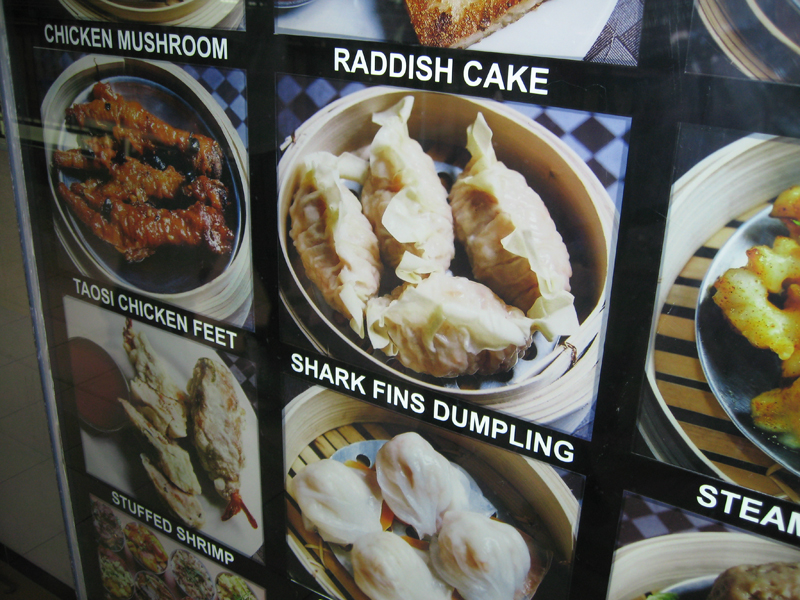
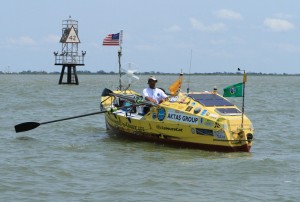
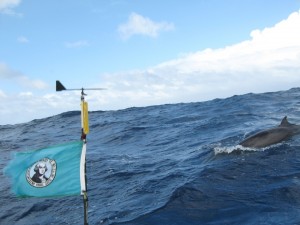
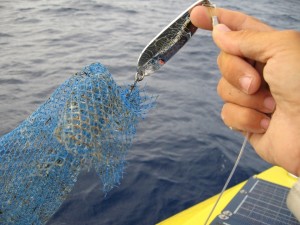
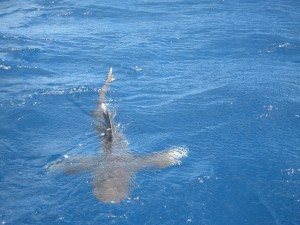
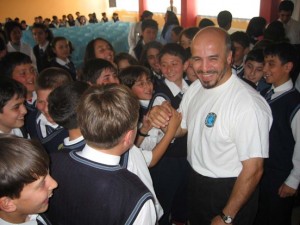
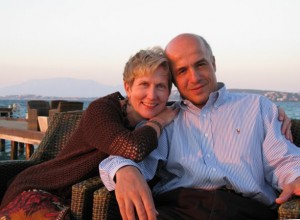

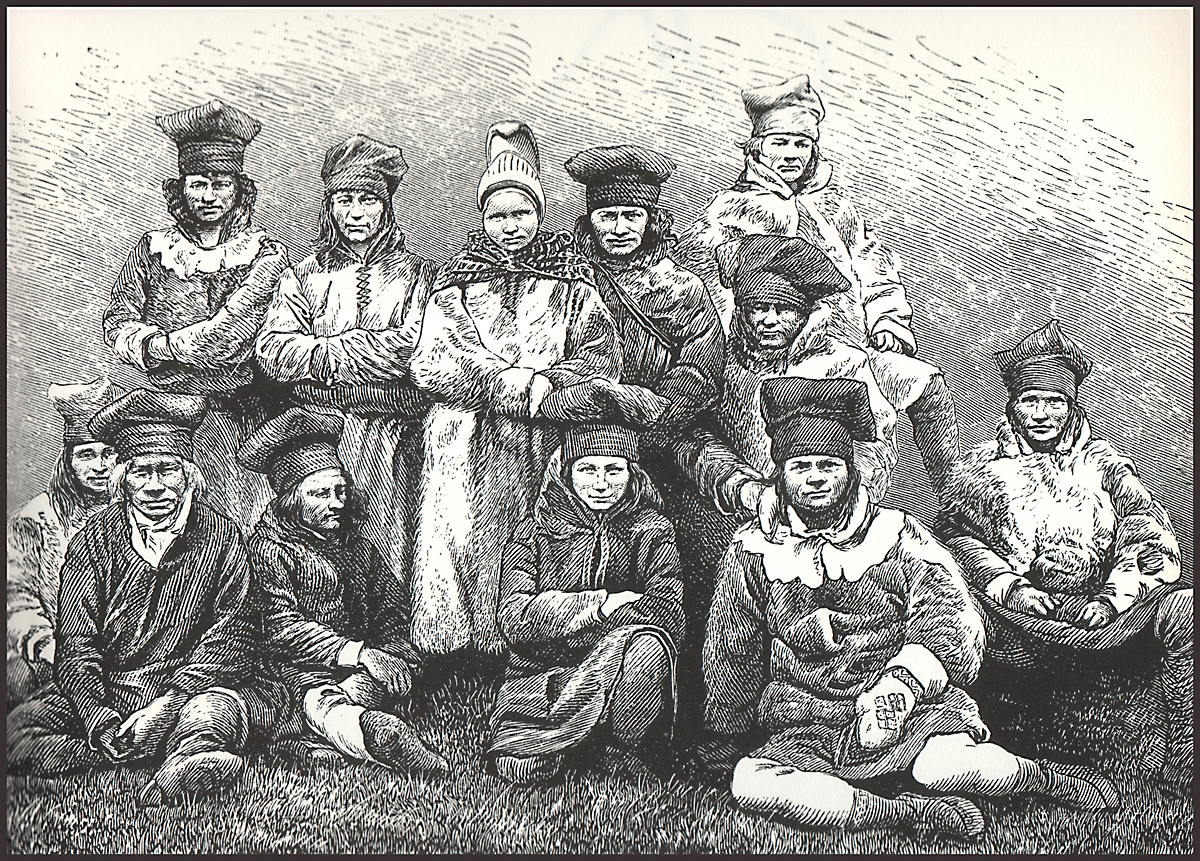
What an insightful piece that touches on so many points I try to make myself on a daily basis. Thank you, Erden, for your wisdom, and thank you, Mikael, for posting it here for more eyes to see. Let’s hope more and more people wake up to the realities of the unfortunate predicament to which we have brought our world. The two critical commodities that sadly remain rare are responsibility and accountability. Here is the message I take every opportunity to disseminate in my own educational program: “the fundamental edict is that human beings are not *distinct* from nature but are a part *of* it.”
Thank you Mikael and Erden. While individuals just talking may not make an immediate difference the spread of knowledge hopefully leads to action. Whether it’s already too late remains to be seen, but this is no reason to give up. Thanks for being you.
Great article. Very well written. Touched me deeply.